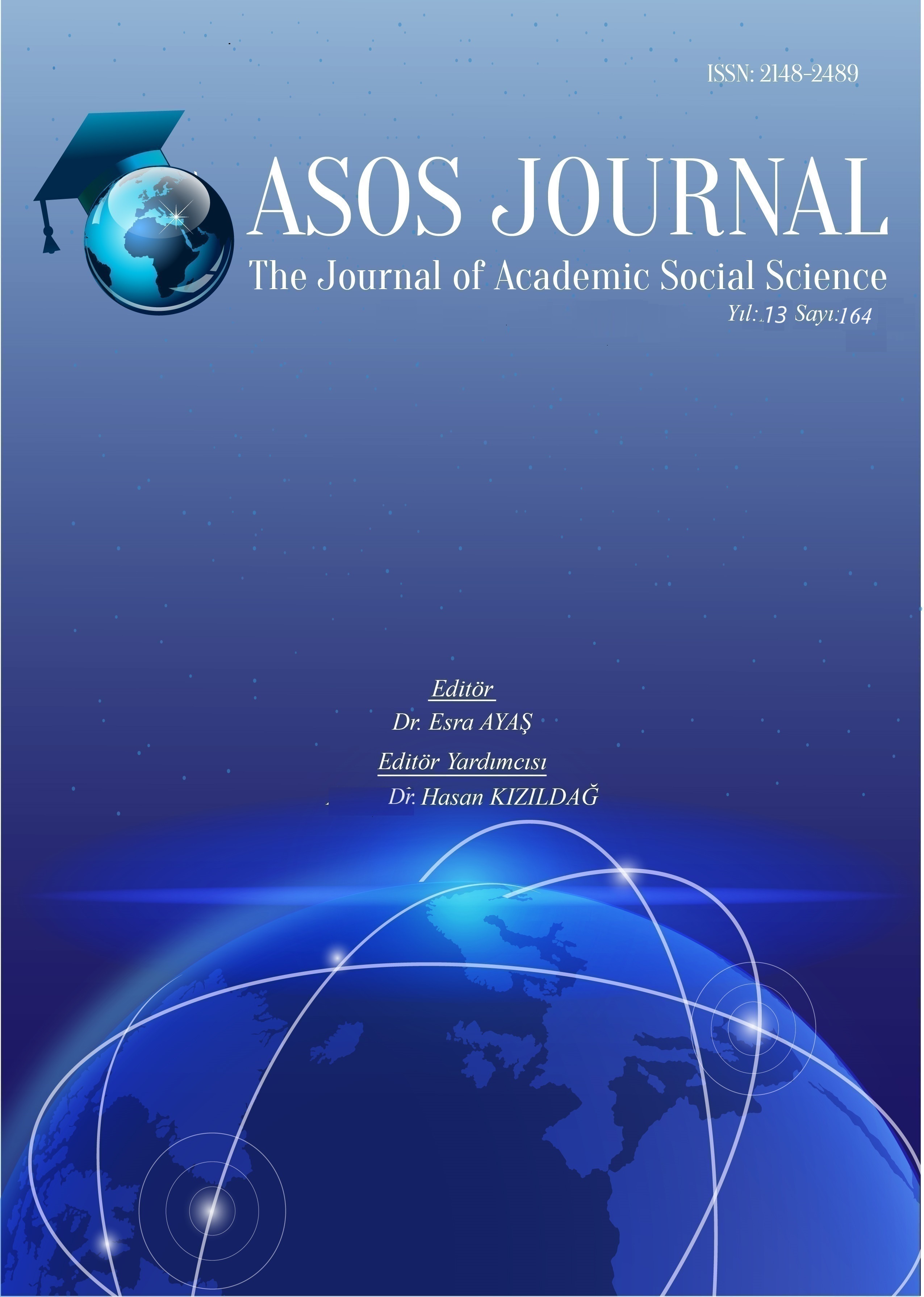TÜRKİYE YÜZYILI MAARİF MODELİ ORTAÖĞRETİM BİYOLOJİ DERSİ ÖĞRETİM PROGRAMININ DİJİTAL OKURYAZARLIK AÇISINDAN İNCELENMESİ
Author :
Abstract
Bu çalışmanın amacı, pilot uygulama yapılmadan, 2024-2025 öğretim yılında, öğretim kademelerinin birinci sınıflarında uygulanmaya başlanan Türkiye Yüzyılı Maarif Modeli öğretim programları ortak metnine göre hazırlanmış olan Ortaöğretim Biyoloji Dersi Öğretim Programının dijital okuryazarlık becerileri açısından incelemektir. Çalışma nitel araştırma yaklaşımı ile yürütülmüştür. Doküman analizi deseninin kullanıldığı çalışmada veriler, Milli Eğitim Bakanlığının resmi web sayfasından ulaşılan Ortaöğretim Biyoloji Dersi Öğretim Programı, doküman incelemesi yöntemi kullanılarak elde edilmiştir. Doküman, dijital okuryazarlık ile ilgili olduğunu düşündüğümüz bilgisayar, dijital, dijital araç, dijital kimlik, dijital ayak izi, teknoloji, iletişim teknolojileri, bilgi teknolojileri, wiki, wikipedi, yapay zeka, sosyal medya, içerik oluşturmak, internet (genel ağ), video, film, animasyon, infografik, blog, vlog, e-posta, çoklu ortam, kitle iletişim, web, elektronik, ekran, sanal, siber güvenlik, skype, çevrimiçi araçlar, podcast, programlar olmak üzere 32 adet kavram ile taranmıştır. Veriler betimsel analiz tekniği ile çözümlenmiştir. Verilerin çözümlenmesi ile elde edilen bulgulardan, BDÖP’de dijital okuryazarlık becerilerine yönelik 32 kavramdan 14 kavramın yer aldığı sonucuna ulaşılmıştır. Bu kavramların, bilgisayar (f=3), dijital (f=21), dijital araç (f=2), teknoloji (f=41), sosyal medya (f=2), video (f=57), film (f=7), animasyon (f=62), infografik (f=100), web (f=7), elektronik (f=2), sanal (f=1), çevrimiçi araçlar (f=4), programlar (f=1) olmak üzere toplamda 310 defa geçtiği tespit edilmiştir. Dijital kimlik, dijital ayak izi, iletişim teknolojileri, bilgi teknolojileri, wiki, wikipedi, yapay zeka, içerik oluşturmak, internet (genel ağ), blog, vlog, e-posta, çoklu ortam, kitle iletişim, ekran, siber güvenlik, skype, podcast dijital kavramları olmak üzere de 18 kavramın programda geçmediği sonucuna ulaşılmıştır. Özellikle yapay zeka ve siber güvenlik kavramlarının geçmemesi dikkat çekici bir sonuç olarak yorumlanmıştır. Bu sonuçlara göre çalışma bütünsel olarak değerlendirilip tartışılmış ve bir takım öneriler sunulmuştur.
Keywords
Abstract
The aim of this study is to examine the High School Education Biology Course Curriculum, which was prepared according to the common text of the Turkish Century Education Model curricula, which started to be implemented in the first grades of the education levels in the 2024-2025 academic year without pilot implementation, in terms of digital literacy skills. The study was conducted with qualitative research approach. In the study in which document analysis design was used, the data were obtained from the High School Biology Course Curriculum, which was accessed from the official web page of the Ministry of National Education, by using the document analysis method. The document was scanned with 32 concepts related to digital literacy, such as computer, digital, digital tool, digital identity, digital footprint, technology, communication technologies, information technologies, wiki, wikipedi, artificial intelligence, social media, content creation, internet (general network), video, film, animation, infographic, blog, vlog, e-mail, multimedia, mass communication, web, electronic, screen, virtual, cybersecurity, skype, online tools, podcast, programmes. The data were analysed with descriptive analysis technique. From the findings obtained by analysing the data, it was concluded that 14 concepts out of 32 concepts related to digital literacy skills were included in the High School Biology Course Curriculum. It was determined that these concepts were mentioned 310 times in total as computer (f=3), digital (f=21), digital tool (f=2), technology (f=41), social media (f=2), video (f=57), film (f=7), animation (f=62), infographic (f=100), web (f=7), electronic (f=2), virtual (f=1), online tools (f=4), programmes (f=1). It was concluded that 18 concepts such as digital identity, digital footprint, communication technologies, information technologies, wiki, wikipedia, artificial intelligence, content creation, internet (general network), blog, vlog, e-mail, multimedia, mass communication, screen, cybersecurity, skype, podcast digital concepts were not mentioned in the programme. Especially the absence of artificial intelligence and cyber security concepts was interpreted as a remarkable result. According to these results, the study was evaluated and discussed holistically, and some suggestions were presented.





